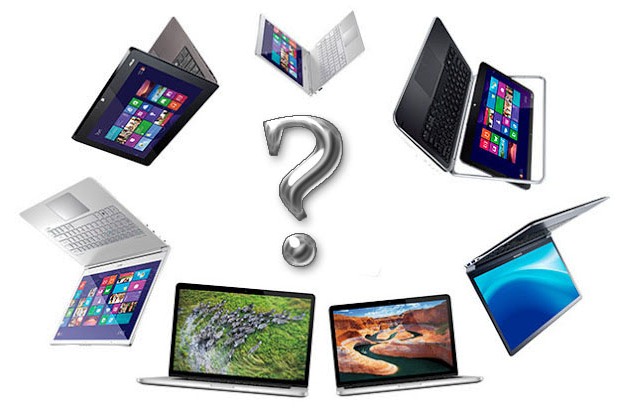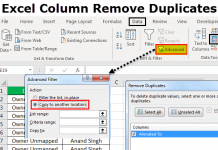Table of Contents
Laptop/computer buying guide: 8 vital tips to know before you purchase
Spend your money on the perfect laptop/computer using this laptop/computer purchasing guide.Laptop/computers are compact adequate to carry with you, yet useful enough to run demanding applications. It’s the best machine for making a serious effort or play. Whether you’re a household, on the road, or in a college class. What Laptop Should I Buy For those reasons, we have compiled lists of the top business laptop/computers and best college laptop/computers, not to mention our best laptop/computers rankings for most workers.
While standalone tablets and smartphones are always shared, most people understand that everything from typing a study paper to crunching video to gaming works better on a laptop/computer. So what type of laptop/computer should you get? We put together a laptop/computer buying guide to assist you out.
There’s a wide diversity of sizes, features, and prices, making selecting the best laptop/computer a challenge. That’s why you want to figure out what your desires are.
Quick Tips What Laptop Should I Buy
These are the most important things to ponder when choosing a new laptop/computer. For a lot more features, see the sections below.
- 12.5 to 14-inch display screens offer the best stability between usability and movability. Larger screens are useful if you don’t travel much, and minor models are great for children.
- If you’re spending over 600 USD, shoot for these minimum specifications. Core i5 or Ryzen 5 CPU 1920 x 1080 screen 8 gigabytes of RAM. Solid State Drive Storage instead of a hard drive.
- Eight plus hours of battery life is perfect if you plan to take your laptop/computer anywhere at all.
- Consider a 2-in-1 laptop/computer (either a bend back or detachable) if you want to use your laptop/computer as a tablet. If not, an ordinary clamshell notebook may be a superior choice.
- Chromebooks are suitable for children and learners, and their functionality is expanding speedily. Windows laptops/computers and MacBook OSs both offer sufficient functionality. Which platform you prefer is an issue of personal taste.
-
Pick a Platform: Mac OS, Windows, or Chrome?
This is not an easy query to answer, especially if you’re not aware of Mac OS and PCs. But this quick impression of each platform’s strengths and weaknesses should aid.
Most laptops/computers come with one of three operating system (OS)s (OS): Windows, Chrome OS, or macOS (for MacBook OSs only). Selecting the right one is a personal liking, but here’s a quick summary of what each gives.
The most flexible operating system (OS), Windows OS, runs on more laptop/computer models than Chrome OS or Mac OS X. Windows OS notebooks range from under $150 to several thousand dollars. What Laptop Should I Buy It also offers a wide array of features from touch screens to fingerprint readers to dual graphics chips. Windows OS 10, the latest version of Microsoft’s flagship operating system (OS), provides several improvements over Windows OS 7 and 8, including switching between tablet and desktop modes, a revamped Start menu with live tiles, etc., powerful Cortana digital assistant.
Since its launch in July 2015, Windows OS 10 has also added a host of improvements, including the ability to use follow-up questions with Cortana, search your email using natural language and use your stylus to scribble almost anywhere. Windows OS 10 laptops/computers are great for students, researchers, and business users, and they’re the only machines gamers should consider.
A Bit More:
All MacBook OSs come with Apple’s modern desktop operating system (OS) (OS), macOS Catalina. Overall, the operating system (OS) offers similar functionality to Windows OS 10. But with a diverse take on the interface that alternates an app’s dock. At the end of the screen for Microsoft’s Start list of options and taskbar. Instead of the Cortana digital helper, Mac users get Siri. What Laptop Should I Buy? They can also achieve transactions with Apple Pay, take calls or texts from their phones. It also unlocks their laptop/computers with an Apple Watch.
However, mac OS isn’t completed for touch because no MacBook OS comes with a touch screen. The latest macOS Catalina operating system (OS) brings iPad apps over to Mac and secondary display support for iPads and new accessibility features.
Windows OS Around What Laptop Should I Buy
Found on cheap Chromebooks such as the Samsung 3 (Chromebook). Google’s OS is modest and secure but more limited than Windows OS or macOS. The user interface (UI) looks a lot like Windows OS with an application menu. Also, a desktop can drag Windows OS around, but the critical app you use is Chrome. The downside is that numerous “web applications” you use don’t work mainly well offline. However, that’s varying as almost all Chromebook OS, including the high-end, PixelBook (Google), can now run Android apps.
If you want a gadget to surf the Webpage and check email, route social networks, and talk online. Chromebooks are highly transferrable and tend to offer decent battery life at low charges. What Laptop Should I Buy? They are also extremely common with schools and mothers because they are hard for children to contaminate with malware and more useful than most tablets. If you want a Chromebook, look for one with at least 4 GIGABYTES of RAM and 16 GIGABYTES of storage. What Laptop Should I Buy? A 1920 x 1080 resolution is favored, and 4K is improved but very uncommon. Pay extra to get a two-in-one if you plan to use Android applications.
-
Decide If You Want a 2-in-1 What Laptop Should I Buy
Many PC laptops/computers fall into 2-in-1 laptop/computers, hybrid devices that can switch between outdated clamshell mode, tablet-style, and other positions such as a tent or stand styles. 2-in-1s generally come in 2 different types. Detachable with screens that arise off the keyboard entirely. What Laptop Should I Buy? Also, flexible laptop/computers with hinges that curve back 360 degrees to change styles.
Most of these systems are healthier at serving individuals than the other, with bend-backs being laptop/computers first—also detachable proposing a superior tablet practice. However, you don’t realize the need to use the notebook as a slate. You’ll typically get more action for your money with an outdated clamshell laptop/computer.
-
Choose the Right Size What Laptop Should I Buy
- 11 to 12 inches. The thinnest and brightest systems around have 11- to 12-inch screens and naturally weigh 2.5 to 3.5 lbs.
- 13 to 14 inches. Provides the best stability of portability and usability, predominantly if you get a laptop/computer that weighs under 4 lbs.
- 15 to 16 inches: The most standard size, 15-inch laptop/computers commonly weigh 4 to 5.5 pounds. Ponder this size if you want a more fantastic screen, and you’re not planning to transfer your notebook around often. Laptop/computers with 16-inch displays are rare, but Apple might get the trend started with its 16-inch MacBook OS OS Pro.
- 17 to 18 inches: If the laptop/computer visits on your desk all day, every single day. A 17- or 18-inch computer could provide you with the kind of processing power. You want to play high-end competitions or do workstation-level output.
-
Check that Touchpad and Keyboard
The most exciting specifications around don’t mean diddly if the laptop/computer you’re shopping for doesn’t have decent ergonomics. Suppose you design to make a lot of effort on your computer. Make sure the keyboard offers reliable tactile feedback, plenty of essential travel. The distance the key goes down when pressed, usually 1 to 2mm and enough space between the keys. What Laptop Should I Buy If you’re buying a Windows OS laptop/computer, be sure it has Accuracy touchpad drivers.
Look for a precise touchpad that does not give you a jumpy pointer. It also responds reliably to multitouch gestures such as pinch-to-zoom. You’re buying a business laptop/computer, consider getting one with a pointing stick (aka nub). It is between the H and G keys so that you can route around. The desktop without elating your fingers away from the keyboard’s home row.
-
Pick Your Specifications
Notebook components such as CPU, hard drive, RAM, and graphics cards can confuse even notebook devotees. So don’t feel bad if specifications sheets seem like alphabet soup to you.
Here are the main modules to keep an eye on.
CPU: The “mind” of your computer, the processor, has a massive effect on performance but reliant on what you want to do. Even the least-expensive prototype may be good enough.
-
Intel 10th Gen CENTRAL PROCESSING UNITs – Ice Lake vs. Comet Lake.
- Intel introduced two types of 10th Gen processors that will power the next generation of laptops/computers. To summarize, Ice Lake, a 10-nanometer chip, offers improved combined Iris Plus graphics. Comet Lake, a 14-nanometer chip, is all about raw presentation, particularly the six-core Core i7-10710U. Which one is right for you? Read this article which will also assist you in deciphering Intel’s confusing naming schema.
-
Intel Core i9:
- Replacing the Core i7 as the new top-line CPU from Intel, Core i9 processors provide faster performance than any other mobile card chips. Available only on most good laptops/computers, workstations, and quality-end gaming rigs. What Laptop Should I Buy Core i9 Central Processing Units are only worth their premium value if you’re a power user. You use the most demanding applications and programs.
-
Intel Core i7 Processor.
- A step up from Core i5 processor, which Models with statistics that end in HQ or K usage higher wattage. Also, have four cores, allowing for even quicker gaming and output. There are also Core i7 Y series processors that have lower power and presentation. Keep an eye out for Central Processing Units that have a 10 in the model number. Because they are part of Intel’s latest 10th Generation Core Series and offer better performance, note that Intel’s H-series 9th Generation Central Processing Units are available now.
-
Intel Core i5:
- Suppose you’re searching for a mainstream laptop/computer with the best mixture of price and performance. Get one with an Intel Core i5 CENTRAL PROCESSING UNIT. Those with the Y in the name are small power and have worse accounts. Simultaneously, models with an HQ use more wattage and appear in thicker gaming and workstation systems. Intel’s newest 10th Generation “Ice Lake” Central Processing Units have four cores and several useful features, including Wi-Fi 6 sustenance, Thunderbolt three integration, and better Artificial Intelligence.
- Intel Core i3 processor: Performance is just a step below Core i5 processor, and so is the price. If you can probably step up to a Core i5 processor, we endorse it.
- Also:
- Intel Xeon: Extremely influential and expensive CPUs for large mobile workplaces. If you do professional-grade engineering, 3D demonstrating, or video editing. You might want a Xeon, but you will not get good battery life or a bright laptop/computer.
- Intel Pentium / Celeron: Common in the sub $400 laptop/computers, these chips offer the slowest performance. What Laptop Should I Buy But can do if your essential tasks are web surfing and light file editing? If you can pay extra to get a Core i3 CPU or i5, you’d be better off.
- Intel Core m / Core i5 CPU / i7 “Y Series.” Low-power and low heat allow systems with these CPUs to go fanless. What Laptop Should I Buy Performance is superior to Celeron, but a notch under the regular Core U sequence?
-
AMD Ryzen 4000.
- A new set of chip cards designed to contest with Intel Core i5 CPU and Core i7. We have found Ryzen 4000 chips to overtake equivalent Intel Core CPUs. For instance, the Ryzen 5 4500U CENTRAL PROCESSING UNIT delivers about the same performance as it provides an Intel Core i7 CENTRAL PROCESSING UNIT. These chips are typically found in many inexpensive laptops/computers.
- AMD A, FX, or E Series: Established on low-cost laptop/computers, AMD’s CPUs. The company calls them APUs rather than Central Processing Units. It provides decent performance for the money that’s good enough for web surfing, media viewing, and productivity. Best Laptop For Photo Editing
-
RAM
: Some sub-$250 laptop/computers come with only 4 GIGABYTES of RAM, but ideally, you want at least 8 GIGABYTES on even a budget system and 16 GIGABYTES if you can spend just a little more. For most folks, 32 GIGABYTES or more is more than enough while 64 GIGABYTES. However, the above is reserved for power workers.
-
Storage Drive (aka Hard Drive).
- Even more vital than the speed of your CENTRAL PROCESSING UNIT is the performance of the storage drive. If you can pay for it and don’t need a ton of internal storage, get a laptop/computer with a solid-state drive (SSD) rather than a hard drive because you’ll see at least three times the speed and a much faster laptop/computer overall.
- Among SSDs, the fresher PCIe x4 (aka NVME) units offer triple the traditional SATA drives’ speed. Sub-$250 laptop/computers use eMMC memory, which is officially solid-state but not faster than an automatic hard drive.
- Display: The extra pixels you have, the more gratified you can fit on-screen, and the sharper it will look. Sadly, some budget laptops/computers have 1366 by 768 displays, and so do a few business laptops/computers, but if you can afford it, we recommend paying extra for a panel that runs at 1920 x 1080, also known as Full HD or 1080p. Higher-end laptop/computers have monitors that are 2560 x 1600, 3200 x 1800, or even 3840 by 2160 (4K), which all look sharp but consume additional power, dropping your battery life.
-
A bit more about display What Laptop Should I Buy:
- Display excellence is about much additional than resolution. IPS panels choice in color and luster. Read our reviews to find out if you’re considering a laptop/computer that has a good display. We typically look for an sR GIGABYTES color rating of over 100 percent and brightness abundant than 300 nits. What Laptop Should I Buy If you need the very best image class and don’t caution about battery life, reflect an OLED display? It would help if you held an eye out for upcoming display technology to hit laptops/computers, including mingled.
- Touch Screen: If you’re purchasing a regular clamshell laptop/computer, rather than a two-in-one, you won’t get much display benefit from a touch s, and you will get on to two hours less battery life. On two-in-ones, touch screens come regularly. If you still want a touch screen, form out our best touch screen laptop/computers.
-
Graphics Chip What Laptop Should I Buy
: If you’re not playing personal computer games, creating 3D items, or doing high-res video editing. A combined graphics chip will be pleasing, notably Intel’s latest Iris Plus visuals. If you have any of the beyond needs, a separate graphics CPU from AMD or Nvidia is vital.
- As with Central Processing Units, there are both high- and low-end graphics cards. Low-end gaming or workplace systems today usually have Nvidia MX250 or GTX 1650 GPUs. While mid-range prototypes have RTX 2050 or RTX 2060 and high-end prototypes have RTX 2070 or 2080 GPUs (graphics card). Nvidia maintains a list of its graphics cards from low to high end.
-
Go on What Laptop Should I Buy:
- Nvidia’s rivals, AMD, is Apple’s seller of choice for graphics cards (GPUs), although. You really shouldn’t buy a MacBook OS OS for gaming. AMD is set to take off the Radeon RX 5600M and the Radeon RX 5700M GPUs (graphics cards) for laptops/computers later this year, so have an eye out for those chips (cards). AMD also keeps a list of its GPUs (graphics cards).
-
Ports:
- While the nonexistence of ports is regularly not a deal-breaker when choosing a laptop/computer. It’s helpful to get the connections you need right on the system, rather than having to carry a slew of dongles. Most mainstream laptops/computers will have USB 3.0 ports and HDMI out for video. What Laptop Should I Buy? However, an increasing number of laptops/computers use USB Type-C or Thunderbolt 3 ports that are USB Type-C compatible?
- Getting Type-C is a sure plus because you can custom it to connect to universal mounts and docks. If you can wait, USB 4.0 will arrive quickly with faster transmission rates and the skill to daisy-chain 4K screens with one cable. Other useful contacts include SD card slots, headphone jacks, and Ethernet ports.
-
Also:
-
Connectivity What Laptop Should I Buy:
- If you want to use your laptop/computer on the go, consider purchasing a notebook with 4G LTE backing. You’ll have to pay for an information subscription plan. But this will allow you to access the internet away from a router. If you want a laptop/computer with the latest and highest connectivity choices, find one with Wi-Fi 6 backing. Wi-Fi 6 offers enlarged theoretical outputs and a more constant connection than 802.11ac. We also propose looking for a laptop/computer with Bluetooth 5. The newest standard offers improved connectivity with Bluetooth-enabled devices, like mice and headphones.
-
DVD/Blu-ray Drives What Laptop Should I Buy:
- Few laptop/computers come with optical drives because all software and movies are downloadable, though we’ve kept track of the laptop/computers with DVD drives. However, if you need to read/write discs and your laptop/computer of choice doesn’t come with a built-in DVD drive, You can always buy an external one that connects via USB for under $20.



















